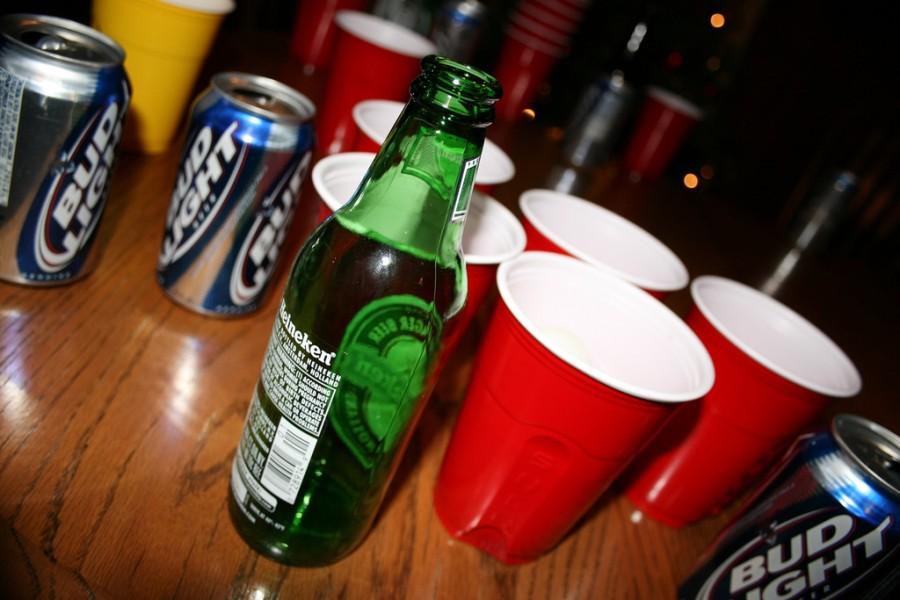Being safe, smart with drugs and alcohol
October 29, 2015
Having the opportunity to celebrate holidays on or around a college campus is part of the college experience.
With Halloween coming up, Central students will have the opportunity to celebrate with their Central family.
“Students go to parties. I think the average is like 68 parties a year that students attend,” said Chris De Villeneuve, executive director of the Student Medical and Counseling Clinic. “If you cut down a percentage of time that you drink or do drugs at those activities you will be healthier for it. Pay attention to what your body needs.”
Staying safe and making smart decisions is the most important part during any celebration.
There are a lot of different factors that can influence students in their drinking habits.
“I have talked with students who have said, from their perspective, being in Ellensburg is tough because it does have that party culture,” said Doug Fulp, health educator in the Central Wellness Center. “While other students say they have felt really supported from the Ellensburg community because it doesn’t have the party nature where that student is from.”
Student infractions are going to happened during the school year, however.
“It is important for students to always remember the impacts that high risk drinking has on personal safety and our community,” said Richard DeShields Associate Dean for Student Living. “These impacts include hospitalization, destruction of property in the community which reflects bad on all CWU students, impacts on future job opportunities, financial and legal consequences, and can even lead to death.
We encourage students to always make safe decisions and help support our local community members by being respectful to personal property.”
DeShields mentioned that most students make low risk decisions regarding choices with alcohol. During busy times of the year, where infractions increase the department sends out reminders about the dangers of risky behavior.
In order to lower student infractions, the Student Medical and Counseling Clinic views the first six weeks of any quarter as the most “on alert” time for them.
“That’s the time we are most likely to see problems occur, and if we can have a better hold on it then I think we decrease a lot of assaults and substance abuse issues especially with underclassmen,” De Villeneuve said.
If an individual does decide to have a drink or use other substances, Fulp said it is best to do so in a safe environment and have a plan.
“Set a limit and stick with it,” Fulp said.
One thing to always remember, just because someone shows up to a social function doesn’t mean they want or have to drink.
“As college students you always want to avoid that celebration drinking experience. Where you’re just drinking because it’s a holiday, ” said De Villeneuve
According to Fulp, one third of Central’s student body doesn’t drink alcohol.
Fulp said another precaution is to always be aware of one’s surroundings. Students should make sure what they are drinking or doing is from a trusting friend.
“More of our students–especially if I talk to them when they have had a policy violation early and then they haven’t been sanctioned for awhile – a lot of them drink less as they get older and that’s a common thread for students who choose to drink more than average,” Fulp said. “When they are younger they start to taper off by the end of college.”
If a person thinks their friends is struggling with substance abuse, De Villeneuve said there are signs to keep in mind.
“If you are consistently using alcohol or marijuana, the likelihood that you are getting up in time for class drops dramatically. [It] impairs ability to concentrate in class,” De Villeneuve said.
If a person wishes to seek help, there are AA meetings going on within Central’s community.
Doug Fulp teaches a course called Prime For Life, which educates students about substances. The course is taught four times a year.
Fulp said that students should keep in mind the Wellness Center is completely non-judgmental when helping students and they shouldn’t be dissuaded from coming in.
“We are not going to tell a student what to do and what not to do,” Fulp said. “We are going to provide them with information to make informed decisions.”


